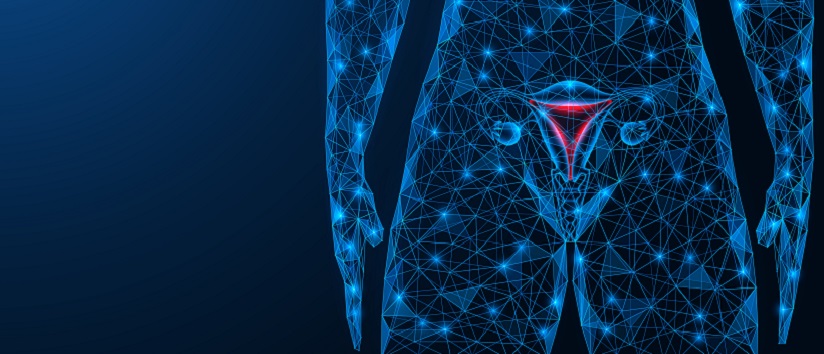Pavilion Publishing and Media Ltd
Blue Sky Offices Shoreham, 25 Cecil Pashley Way, Shoreham-by-Sea, West Sussex, BN43 5FF, UNITED KINGDOM
Conference report: The Menopause Society annual meeting
This conference report highlights the latest news and clinical data from the annual meeting of The Menopause Society, held in Philadelphia, USA.
The Menopause Society (formerly The North American Menopause Society) is dedicated to empowering healthcare professionals and providing them with the tools and resources to improve the health of women during the menopause transition and beyond. This conference report highlights the latest news and clinical data from the annual meeting held in in Philadelphia, USA.
Obesity could lower the efficacy of hormone replacement therapy
New research shows that obesity may also worsen a woman’s menopause symptoms and limit the amount of relief she gets from hormone replacement therapy (HRT).
The five-year study involving 119 patients looked the impact of comorbidities on the efficacy of HRT during menopause, especially the effect of obesity defined as a body mass index of greater than or equal to 30.
There were no statistically significant differences between the two groups of patients (obese vs. non-obese) relative to age, duration of menopause, or use/acceptance of HRT. Women with obesity, however, were more likely to self-identify as Black, report the presence of hot flashes, genitourinary/vulvovaginal symptoms, mood disturbances, and decreased libido.
Based on the results, the researchers concluded that menopausal women with obesity experienced an increase in menopause symptom prevalence and lower efficacy of HRT.
Dr Anita Pershad from Eastern Virginia Medical School in Norfolk, said: “We studied menopausal symptoms in an underrepresented patient population that’s not often included in women’s health studies. This research can help clinicians serving a more diverse racial and socioeconomic patient population that’s severely affected by the social determinants of health to provide better tailored care and counseling to patients seeking treatment for their menopausal symptoms.”
Higher cortisol levels may affect mental health in menopausal women
Elevated cortisol levels in the hair and saliva may affect cognitive and mental health in late peri/early postmenopausal women, according to study results presented at the annual meeting.
The study involving 43 participants in late perimenopause or early postmenopause evaluated the impact of stress by determining the degree to which hair and salivary cortisol levels correlated with depression symptom severity and cognitive performance on verbal memory, verbal learning, attention, and working memory tests among healthy women in late peri/early postmenopause.
The researchers found that higher levels of hair cortisol were significantly associated with worse attention and working memory performance. Hair cortisol did not significantly correlate with performance on verbal learning or verbal memory tests. Salivary cortisol did not significantly correlate with verbal memory recall trials, attention, or working memory performance; however, higher salivary cortisol was significantly associated with worse depressive symptom severity.
This work suggests that markers of hypothalamic-pituitary-axis (HPA) activation that capture total cortisol secretion over multiple months, ie, hair cortisol, strongly correlate with cognitive performance on attention and working memory tasks, whereas measures of more acute cortisol, ie, salivary cortisol, may be more strongly associated with depression symptom severity.
Dr Christina Metcalf, Assistant Professor and lead author from the Department of Psychiatry at the University of Colorado, said: “This work provides initial evidence linking longer-term HPA activation with worse attention and memory during perimenopause. Other research has demonstrated that interventions can decrease HPA activation; my next steps will be to study whether longer-term HPA is a modifiable marker and if by decreasing HPA activation with interventions we can improve executive functioning during the perimenopause.”
Hot flushes linked to cardiovascular risk
New research has found that there is a link between physiologically assessed hot flashes with heightened systemic inflammation, which is a risk factor for heart disease.
Vasomotor symptoms, more often referred to as hot flashes, are one of the most common symptoms identified during the menopause transition, with roughly 70% of midlife women reporting them. Not only do they interfere with a woman’s quality of life, but they have also been related to physical health risks, such as cardiovascular disease.
Previous research linking hot flashes with heightened systemic inflammation has relied on self-reporting to document the frequency and severity of the hot flashes. These self-reports of hot flashes are limited as they ask women to recall hot flashes over weeks or longer and may be subject to memory or reporting biases.
A new study that included 276 participants from the MsHeart study, however, utilised sternal skin conductance to physiologically assess hot flashes and tested whether more frequent physiologically assessed hot flashes are associated with heightened system inflammation.
While large increases in inflammatory markers indicate acute infection or clinical disease, small and sustained increases of markers of inflammation that are in the physiologically normal range are predictive of later disease risk. For example, small and/or sustained increases in inflammatory biomarkers (conceptualised as heightened levels of systemic inflammation) have been related to plaque development and atherosclerotic cardiovascular disease.
Based on the results of the study, the researchers concluded that physiologically assessed hot flashes during wake were associated with higher levels of a high-sensitivity C-reactive protein, even after adjusting for potential explanatory factors such as age, education, race/ethnicity, body mass index, and estradiol.
Mary Carson, MS, lead author from the Department of Psychology at the University of Pittsburgh, said: “This is the first study to examine physiologically measured hot flashes in relation to inflammation and adds evidence to a growing body of literature suggesting that hot flashes may signify underlying vascular risk and indicate women who warrant focused cardiovascular disease prevention efforts.”
Weight gain is common in menopause, but not inevitable
Weight gain in midlife women is the result of changes related to ageing, menopause, and lifestyle. As women age, they are likely to expend less energy because of a reduction in physical activity and a decrease in lean mass. As a double whammy, hormone changes characterised by decreased oestrogen levels that are part of the menopause transition influence the distribution of body fat, contribute to increased central adiposity, and further exacerbate lean mass loss.
Weight gain and changes in body fat distribution have many negative health ramifications. They are especially hard on the heart and joints and have been shown to worsen other menopause symptoms. It also harms a woman’s self-esteem and is associated with the development of heart disease, cancer, and declines in cognition and mental health.
At the annual meeting, Dr Maria Daniela Hurtado said that early counseling and anticipatory guidance on the importance of dietary changes and physical activity to mitigate weight gain during midlife is important.
She added: “Comprehensive lifestyle interventions remain the backbone of any treatment plan for weight gain prevention or weight loss and should include medical nutrition therapy, exercise and behavioral interventions.”
According to Dr. Hurtado, there are special considerations relative to macronutrient dietary content and type of exercise for midlife women. She warns that, while effective, lifestyle modification-induced weight loss is often followed by weight regain due to compensatory changes in appetite and energy expenditure. That’s why there has been an increase in the use of anti-obesity medications and/or surgical interventions in conjunction with lifestyle changes.



